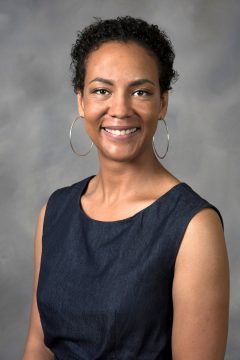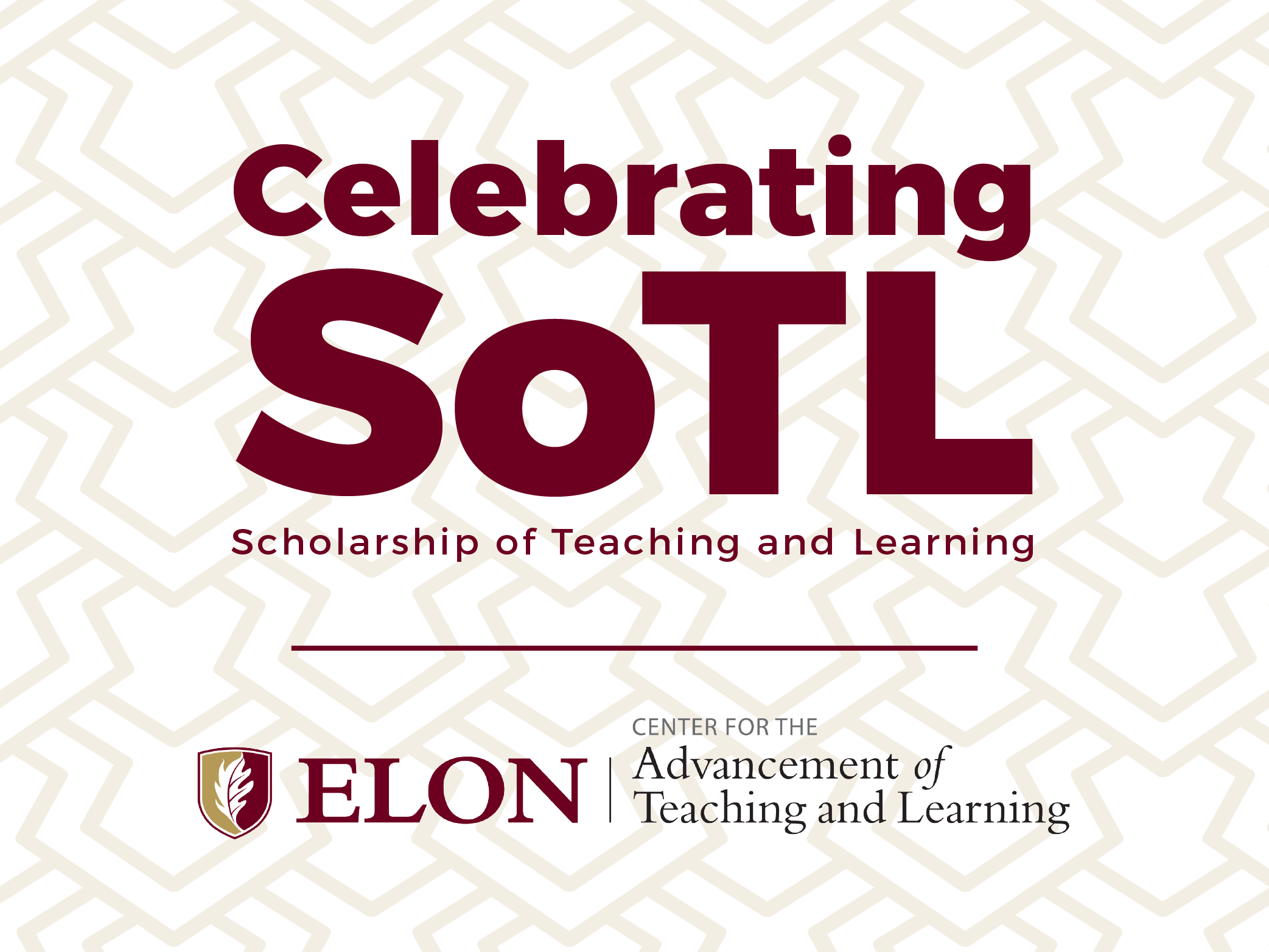Assistant Professor of Performing Arts Keshia Wall is studying how a West African dance course can help students become lifelong learners of culture and difference.
Each spring during CELEBRATE!, the Center for Engaged Learning (CEL), the Center for the Advancement of Teaching and Learning (CATL), and the Center for Research on Global Engagement (CRGE) join together to showcase research projects focused on the Scholarship of Teaching and Learning (SoTL). Due to COVID-19, we have shifted from our usual poster presentation session to an online version through a series of Today@Elon stories. Follow along each day as we share Elon scholars’ research on innovative teaching practices.
 Assistant Professor of Performing Arts Keshia Wall is working with the Center for Research on Global Engagement (CRGE) on a research project that studies the development of cultural humility in students participating in the traditional West African dance course. The course covers the dance and music of West Africa, but it also focuses on the area’s history and culture. Professor Wall sees the course as an important opportunity for students to increase their global engagement while remaining on campus, and she’s setting out to study how these students’ worldviews and attitudes change throughout the semester.
Assistant Professor of Performing Arts Keshia Wall is working with the Center for Research on Global Engagement (CRGE) on a research project that studies the development of cultural humility in students participating in the traditional West African dance course. The course covers the dance and music of West Africa, but it also focuses on the area’s history and culture. Professor Wall sees the course as an important opportunity for students to increase their global engagement while remaining on campus, and she’s setting out to study how these students’ worldviews and attitudes change throughout the semester.
Professor Wall hopes to measure students’ development not just in their knowledge of culture and their cultural competency, but also in their cultural humility. First defined by Tervalon and Murray-García, cultural humility is a person’s ability to “continually engage in self-reflection and self-critique as lifelong learners… [requiring them to] bring into check the power imbalances that exist … and to develop and maintain mutually respectful and dynamic partnerships with communities” (1998, 118). Through this specific course, Dr. Wall sees that students are “able to make connections between the slave trade in 1619 and what’s still happening in the US in 2021. . . . When you think about it, not that much has changed, when you see the racism and outright social injustice that is happening in America.”
Wall is using the Global Engagement Survey to collect quantitative and qualitative data on the connection between students’ global engagement and variables in the course curriculum. She is still collecting data, but she expects that the results will confirm the importance of this type of course in students’ global education. She plans to continue the research project when she next teaches a study abroad course in Ghana. She expects to see even stronger outcomes then, as students meet and learn from dancers in Africa.
She also hopes the research study will provide important evidence of the integral place of this type of course in dancers’ education. Currently, West African dance is an elective course in the dance major at Elon (as it is at most universities). Ballet and other Eurocentric forms of dance are often considered foundational, but Professor Wall argues that traditional West African dance should be considered the true foundation of all dance. It improves dancers’ stamina and body movement, while simultaneously helping them explore their worldviews and attitudes about African culture.
Dr. Wall says, “My agenda is to put traditional African culture into the world in any way possible — with every show that I direct, every class that I teach, every piece that I choreograph.” Her research project is allowing her to document and share her students’ growth both as dancers and as lifelong learners of culture and difference.
This project is supported by a faculty research grant from Elon’s Center for Research on Global Engagement (CRGE). Each year, these grants support high-quality research designed to strengthen Elon’s commitment to diversity and global engagement. Learn more about CRGE’s funding opportunities.
Reference
Tervalon, Melanie, and Jann Murray-García. 1998. “Cultural Humility Versus Cultural Competence: A Critical Distinction in Defining Physician Training Outcomes in Multicultural Education.” Journal of Health Care for the Poor and Underserved 9, no. 2: 117-125. https://doi.org/10.1353/hpu.2010.0233.



